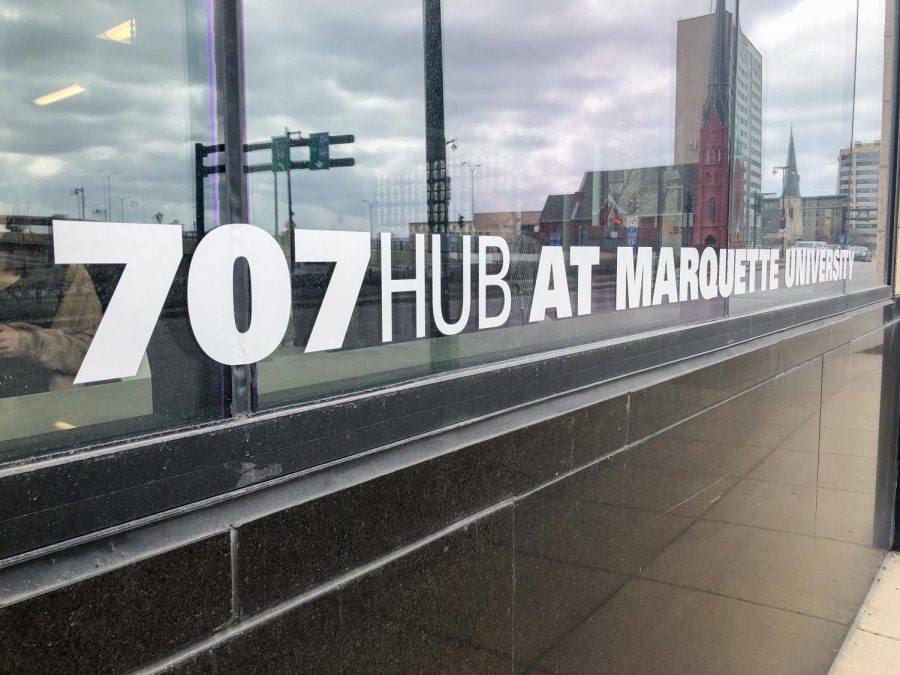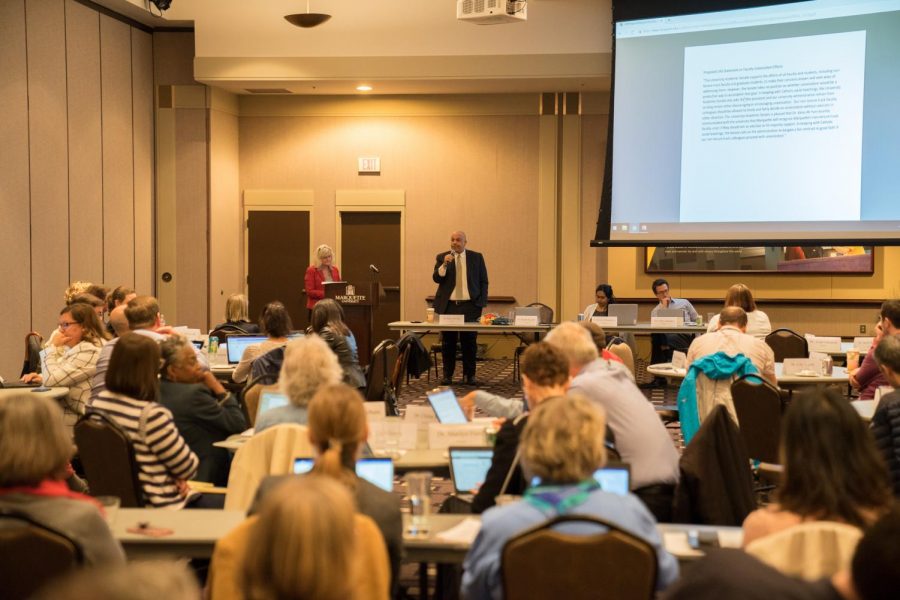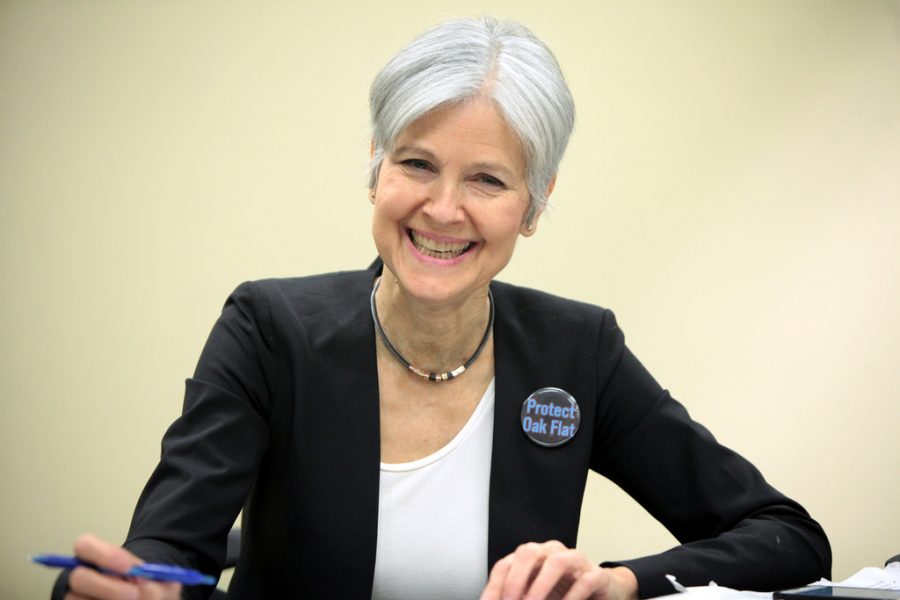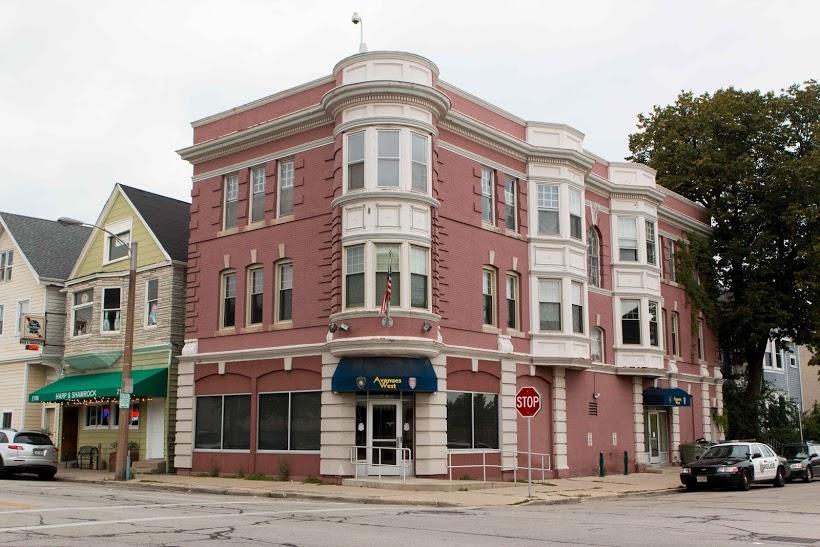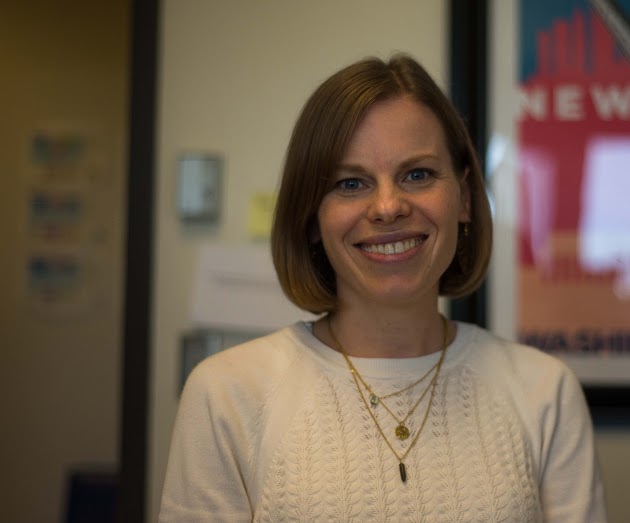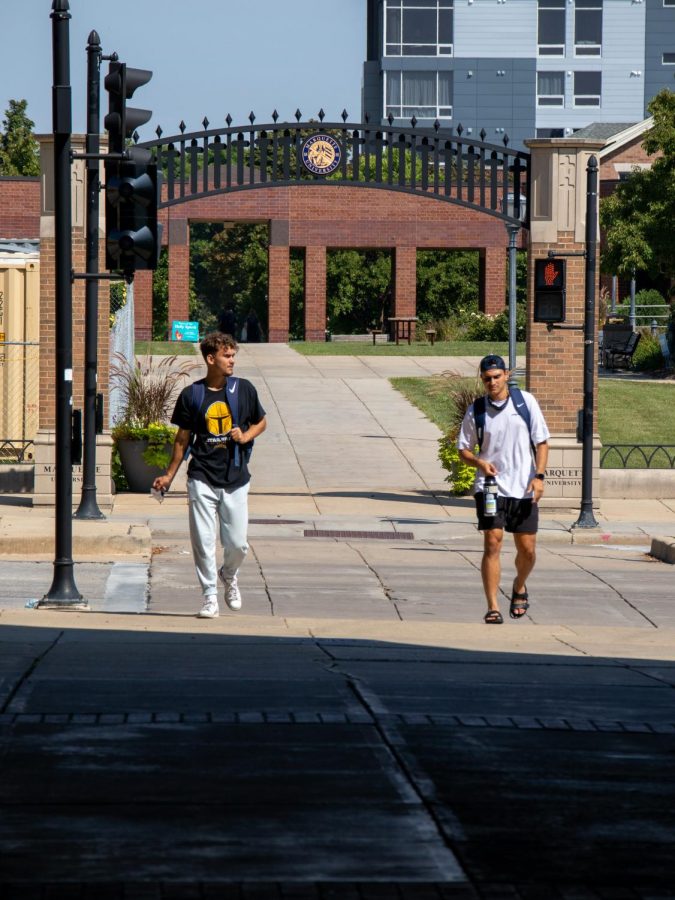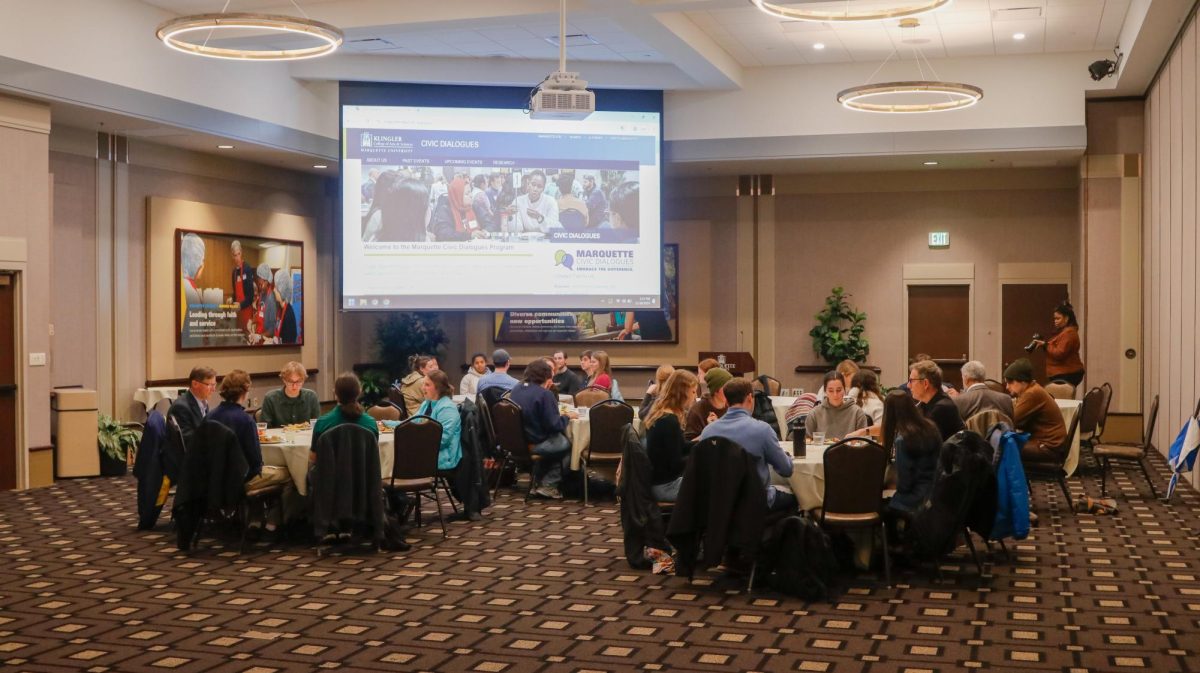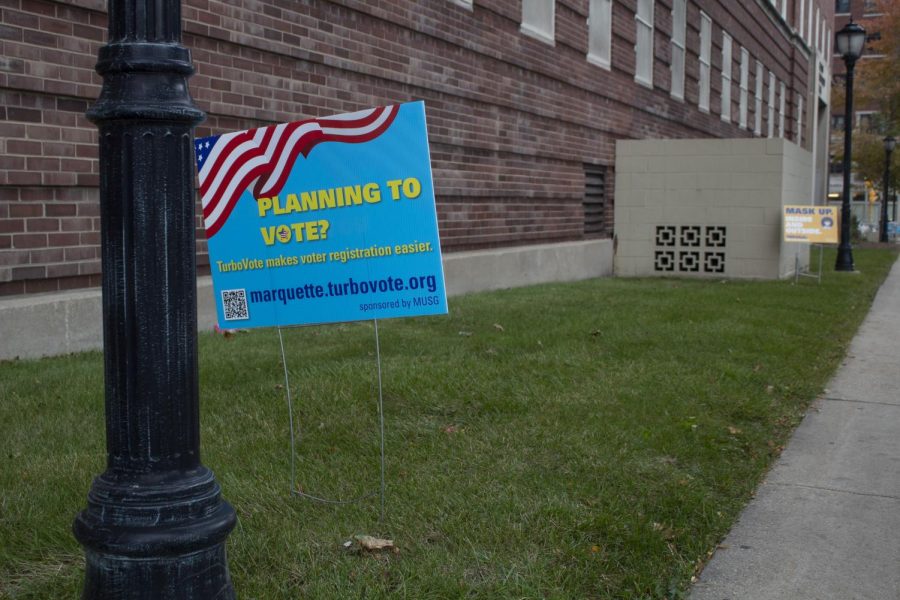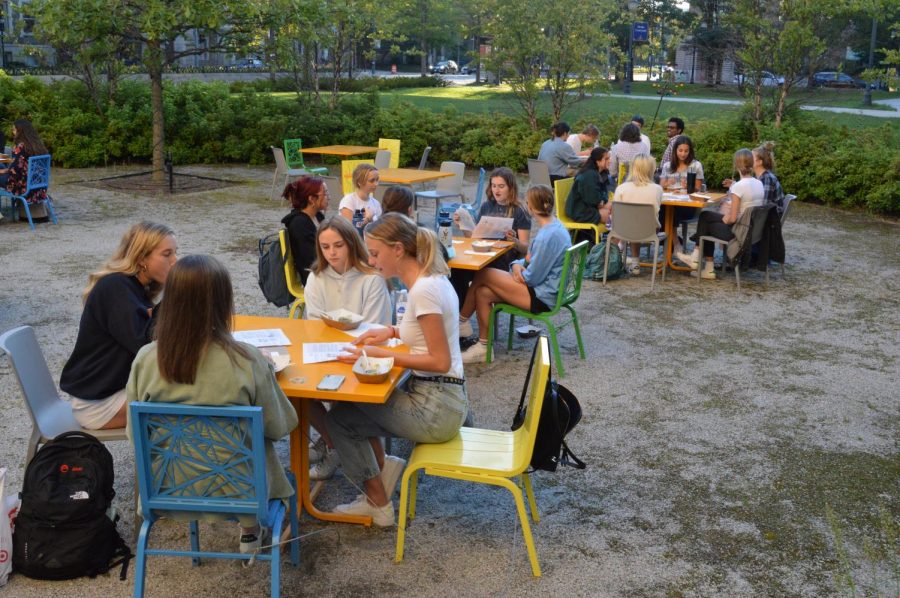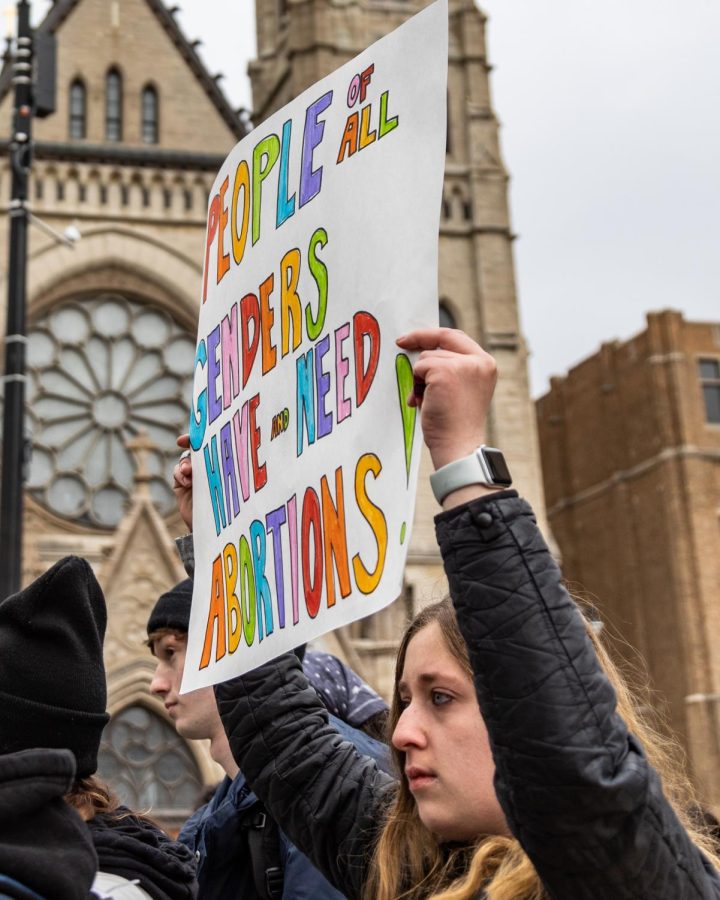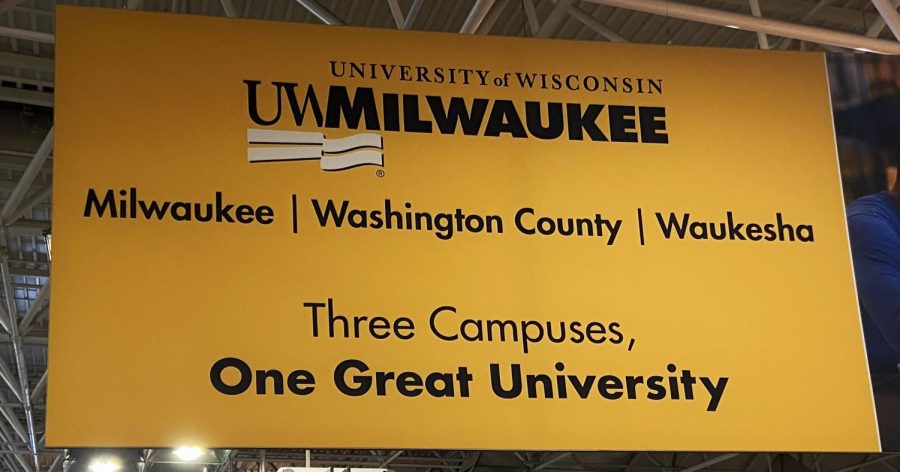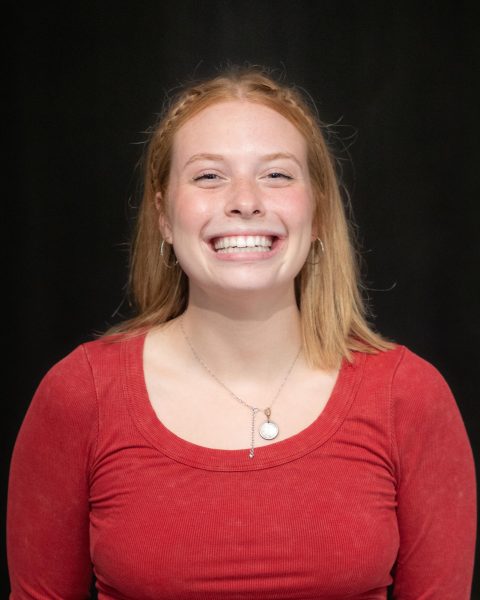Under the First Amendment, citizens of the United States are guaranteed freedom of religion, expression, assembly and the right to petition, prohibiting Congress from intervening. Yet, this only applies to public institutions, so at Marquette University, a private institution, the university can control student and faculty freedoms.
Amber Wichowsky, the associate professor of political science, moderated the “Free Speech @ MU: How We Can Build an Inclusive and Engaged Campus Community” discussion last Wednesday at the 707 Hub.
The panel consisted of Kalen Kennedy, a doctoral student, Paul Nolette, associate professor of political science, Ericka Tucker, associate professor of philosophy and Chris Mueler, a Marquette 1996 alum. The discussion covered what free speech is like on a private college campus and how to engage professionally in political conversations.
Nolette was the first to speak at the panel. Nolette said that there is much confusion on what the First Amendment actually means, and described to what extent the law affects our freedoms.
“Ultimately the law can only go so far in explaining our rights and duties. Just because the First Amendment doesn’t apply to Marquette doesn’t mean that Marquette shouldn’t promote the freedom of speech or that shouldn’t be an important value that students operate under,” Nolette said.
Tucker was the next to speak and discussed the philosophy behind freedom of speech in our country.
“If we don’t take into consideration the power that people have, we can’t really make sense of our rights to freedom,” Tucker said. “As students, what power do you really have when confronting an administration who has power over your ability to continue on at Marquette.”
Kennedy spoke about social hierarchies that exist within the Marquette community, and what effect these groups have on the ways we think about people.
Kennedy said that there are two groups that occur in most communities. First is in-group, who are the people who share similar interests and backgrounds to us. The second is the out-groups, who are those who do not typically run in the same group that we do. Kennedy said that it’s important that we have open conversations with both groups.
“We have to be aware of when we are going to be critical of someone, especially if they are a part of that out-group. Collectively there are a lot of benefits to having the conversations where we might not agree on certain topics because it can lead to more understanding and goal-oriented society,” Kennedy said.
The last to speak at the panel was Mueler. He studied economics and political science during his time at Marquette, and graduated with a Bachelor in arts degree in both subjects.
“For business, it’s more efficient to have civic dialogue. From a political perspective, usually if you are communicating better, it’s going to be easier to get what you want. And from a personal view, we can be aggregable with each other which is just a better way to live,” Mueler said.
Wichowsky then split peers and faculty into groups to discuss further, but first touched on why the content of this discussion matters. She said that because we live in such polarized times, we have to raise the question, “How do we become better people through proper communication?”
Wichowsky said that the civic dialogue events were started at Marquette to give students a chance to openly discuss current controversial issues that exist in our world. Some of the discussions include topics of climate change, homelessness and free speech.
“This panel was really to try to get different perspectives on these issues,” Wichowsky said. “We want to focus on how we engage with one another through productive and meaningful conversations and listening to what others have to say about certain topics.”
Wichowsky said that she hopes for more student involvement in these civic dialogue discussions so that they will continue to grow on campus.
“If students have ideas, send them our way. Students can follow us on social media. We want to see these ripples continue so it’s important for us to cover more topics that students are actually interested in,” Wichowsky said.
This story was written by phoebe goebel. She can be reached at phoebe.goebel@marquette.edu


